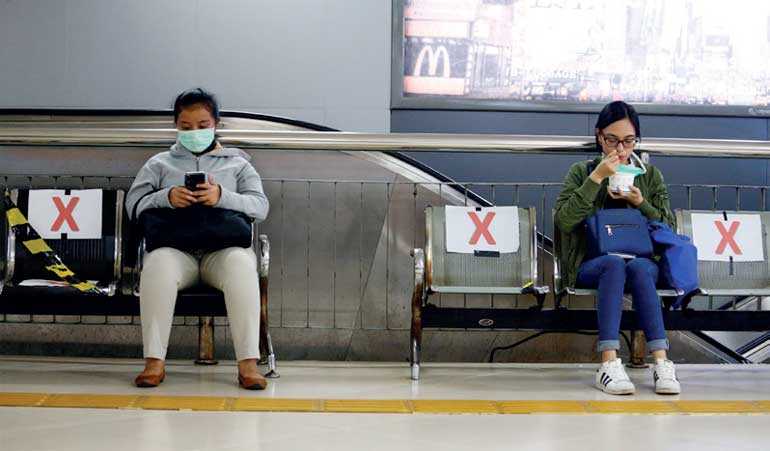Friday Feb 20, 2026
Friday Feb 20, 2026
Wednesday, 1 April 2020 01:15 - - {{hitsCtrl.values.hits}}

Passengers sit on a social distancing chairs at a station to prevent the spread of coronavirus disease (COVID-19) in Jakarta, Indonesia, March 30 - Reuters
Beijing (Reuters): The coronavirus epidemic is “far from over” in the Asia-Pacific region, and current measures to curb the spread of the virus are buying time for countries to prepare for large-scale community transmissions, a WHO official said on Tuesday.
Even with all the measures, the risk of transmission in the region will not go away as long as the pandemic continues, said Takeshi Kasai, Regional Director for the Western Pacific at the World Health Organization (WHO).
The new coronavirus first surfaced in central China in late 2019. Infections have now exceeded 770,000 cases worldwide, with the United States, Italy and Spain overtaking mainland China in confirmed cases.
“Let me be clear. The epidemic is far from over in Asia and the Pacific. This is going to be a long-term battle and we cannot let down our guard,” Kasai told a virtual media briefing.
“We need every country to keep preparing for large-scale community transmission.”
Countries with limited resources are a priority, such as Pacific Island nations, he said, as they have to ship samples to other countries for diagnoses, and transportation restrictions are making that more difficult.
Kasai warned that for countries that are seeing a tapering-off of cases, they should not let down their guard, or the virus may come surging back.
The WHO does not expect any country to be safe, as the coronavirus will eventually get everywhere, said WHO technical adviser Matthew Griffith.
“Whereas countries and areas in this region have shown how to flatten the curve, outbreaks continue to pop up in new places and importation remains a concern,” Griffith said at the briefing, citing cases in Singapore and South Korea from people who travelled abroad.
The focus of the epidemic is now on Europe, but that will likely shift to other regions, Griffith said.